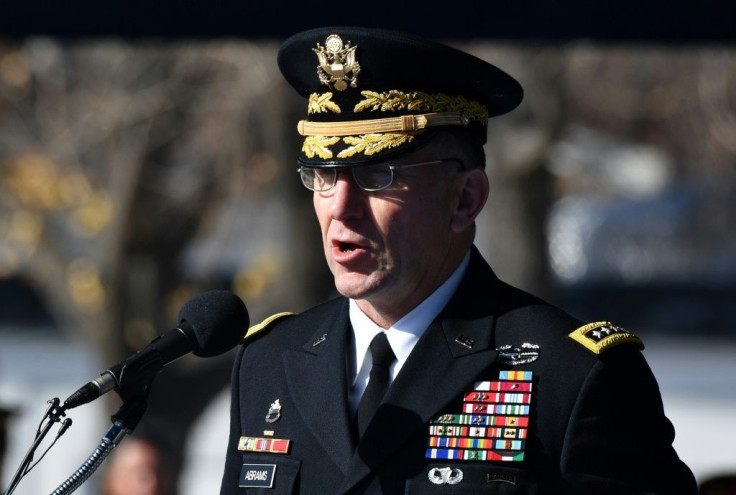Seoul-Tokyo Row Risks Sending 'Wrong Message': USFK Chief

Seoul's decision to terminate a key military intelligence sharing pact with Japan risks sending the "wrong message" to adversaries, the commander of US troops in South Korea said ahead of the deal's expiration next week.
Seoul and Tokyo are both major US allies, democracies and market economies faced with an overbearing China and nuclear-armed North Korea.
But their relationship continues to be heavily affected by Japan's colonial rule of the Korean peninsula from 1910 to 1945.
The latest manifestation of their dispute over wartime history has escalated into a conflict over trade in the wake of South Korean court rulings against Japanese companies.
As part of the row, South Korea said in August it will end the General Security of Military Information Agreement (GSOMIA) when it expires at midnight on November 22.
The 2016 deal -- which enables the two to exchange military secrets, particularly over North Korea's nuclear and missile capacity -- had sent a "clear message" to the region that they were putting stability and security before their "historical differences", said General Robert Abrams, commander of US Forces Korea.
"And without that, there is a risk of sending the wrong message that perhaps we're not as strong," Abrams told reporters Tuesday at his Camp Humphreys headquarters in Pyeongtaek, around 60 kilometres (38 miles) south of Seoul.
Abrams leads the 28,500 troops the US stations in the South, a treaty ally, to defend it against its nuclear-armed neighbour. The North's invasion of the South in 1950 triggered the Korean war.
US diplomats say privately that the poor relations between Seoul and Tokyo complicate diplomacy in the region.
South Korean officials have said they will continue sharing military intelligence with Tokyo through a trilateral channel with the US as the intermediary -- but that has raised concerns over delays in urgent situations.
Abrams, who also serves as the commander of the UN Command and the South Korea-US Combined Forces Korea, assumed his post in November last year in the wake of a rapid diplomatic rapprochement with Pyongyang and has rarely spoken to the media.
In recent weeks and months the North has carried out a series of rocket launches, which he said were "not contributing to a continued air of detente on the Korean peninsula".
"We take every one of those very seriously to determine capabilities, limitations and intent," Abrams added.
Negotiations between Pyongyang and Washington have been gridlocked since the Hanoi summit between leader Kim Jong Un and US President Donald Trump broke up in February without an agreement.
The pair met again at Panmunjom in the Demilitarized Zone in June to try to restart the process, but working-level talks in Stockholm broke up last month and contact has since been minimal, with Pyongyang demanding the US come up with a new offer by the end of the year.
© Copyright AFP 2024. All rights reserved.





















